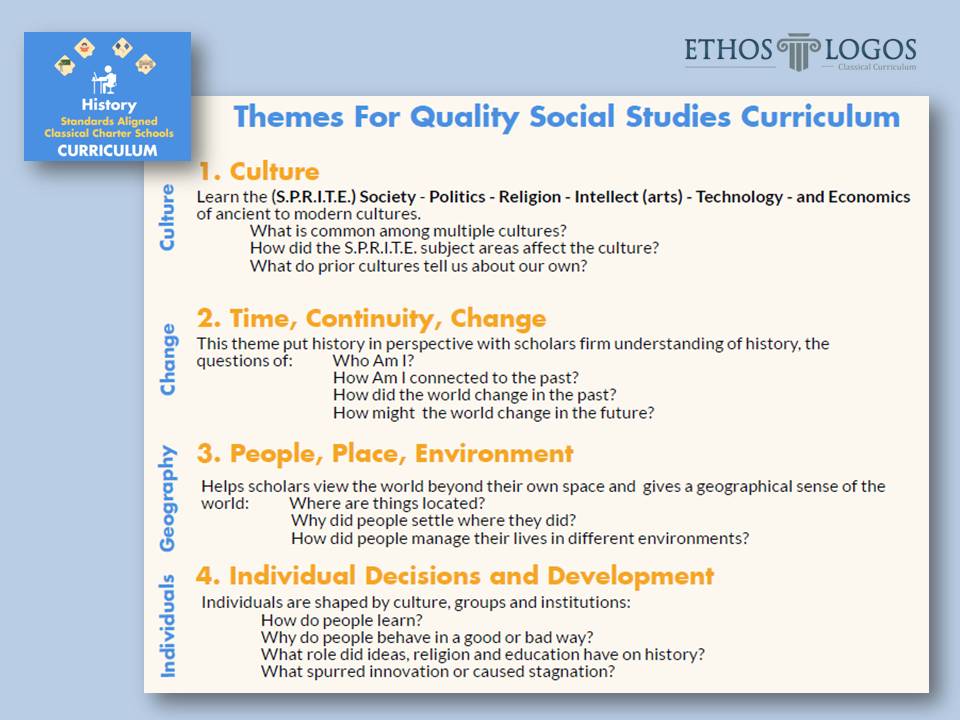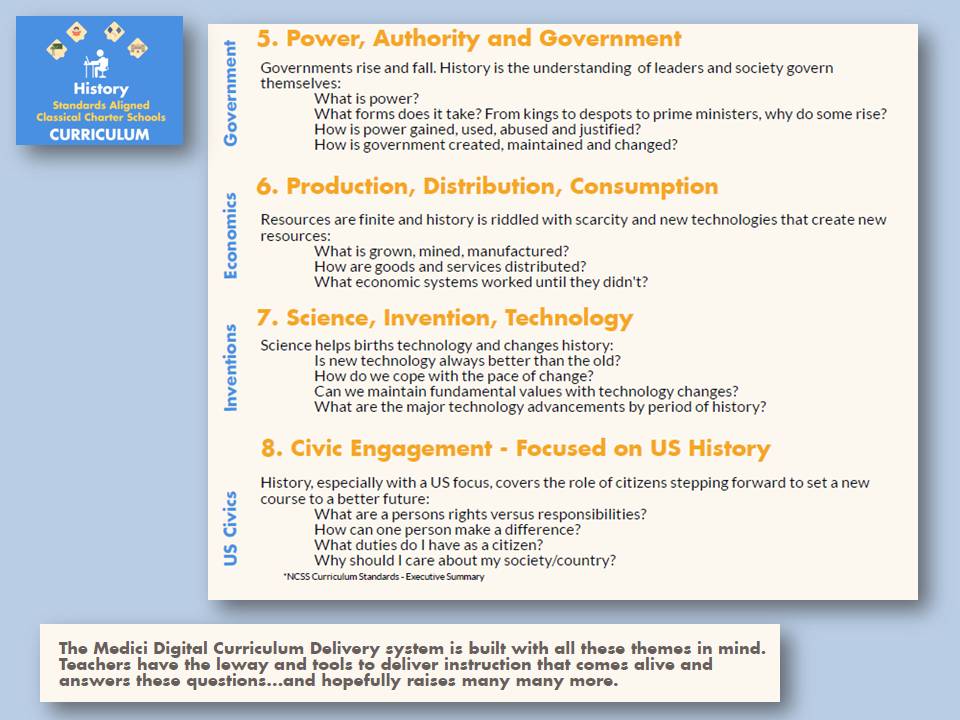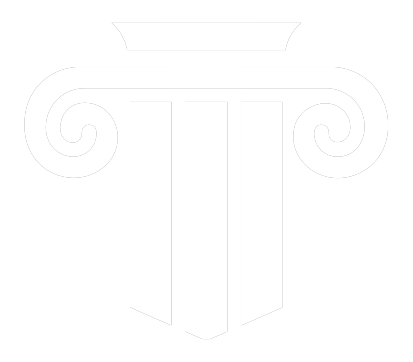Thematic Units – Emersion In History
The use of thematic units of study, in the case of the Ethos Logos Curriculum, is the immersions in time periods of history. This immersion technique has been found to have a higher level of Critical Thinking Skills and a more positive attitude towards Social Studies in general. [1] The Ethos Logos model is built on a year long exploration of a historical time period which moves beyond fact memorization and on to knowledge utilization and application. According to Freeman and Sokoloff, the goal is to build curriculum so that students explore these questions and that students develop facility in math, science, literature, history, … etc. It is not possible to answer such questions without using the knowledge, skills, and attitudes represented within the disciplines.[2]
[1] The Effects of Thematic Social Studies Instruction on Eight Grade Student’s Historical Reasoning Ability and Attitudes Towards Social Studies Related Tasks. Cloutier, Andrew R (2013). Education Dissertations. http://repository.wcsu.edu/educationdis/21
[2] Freeman, Skoloff, “Toward a Theory of Thematic Curricula: Constructing New Learning Environments for Teachers & Learners” (1995). Education Policy Analysis Archives.
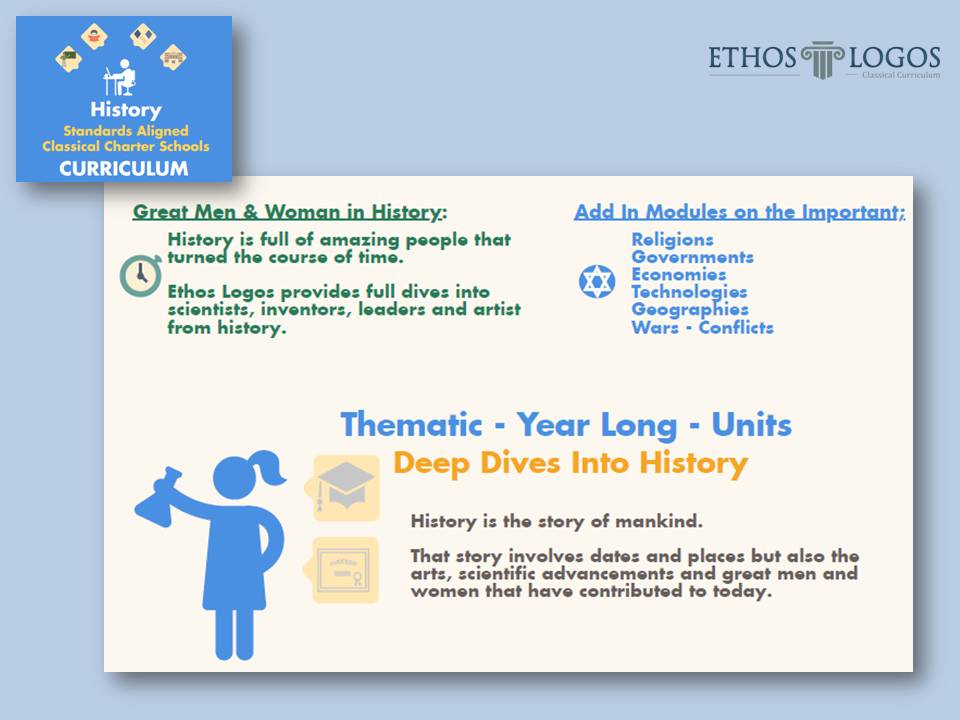
Customized Curriculum Resources For History
Gibboney (1994)[1] showed the challenges teachers experience in taking off the shelf publisher textbooks and the difficulty in embedded the concepts into various pedagogies. His study puts forth that teachers are professionals and are most successful with they adapt their instruction to meet their comfort levels and the responses from their students. Nowhere is this adaptation more pronounced than in the Classical pedagogy. Since the classical education model has been primarily focused on secular private schools, to build out a comprehensive thematic program has been elusive. Many public Classical charters have been forced to piece together a program from various publishing houses content. True thematic instruction has been difficult to achieve. The Ethos Logos Classical Curriculum program has employed by Cato Academy has over 2000 syllabi built for Math, English, History, Science, Art, Music, Logic, Latin, and Geography.
[1] Gibboney, R. (1994). The stone trumpet, A story of practical school reform, 1960-1990. Albany, NY: State University of New York Press.
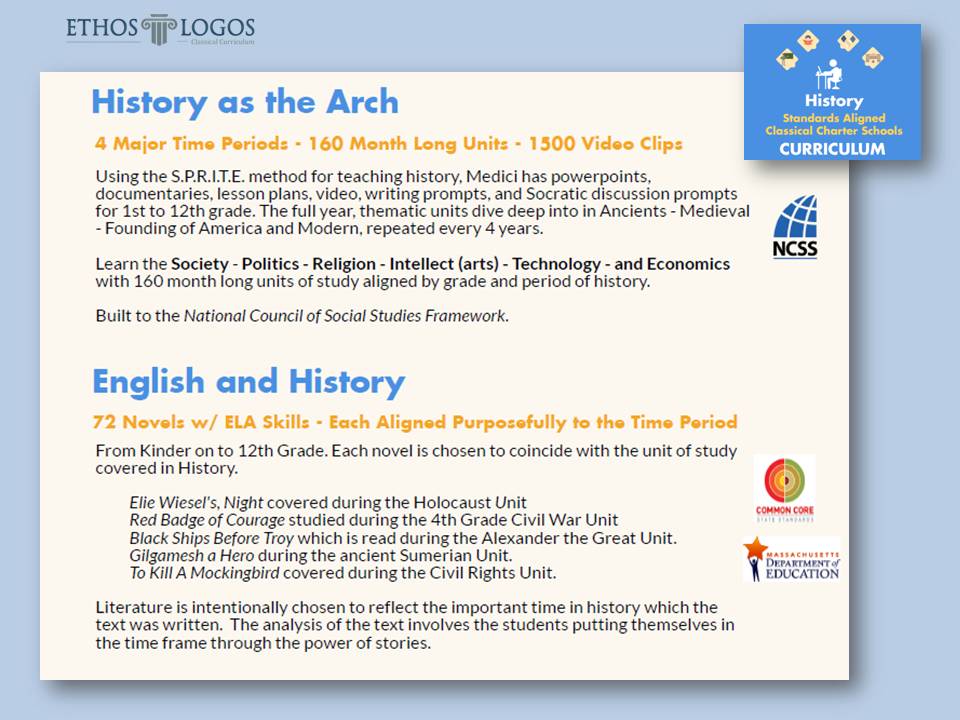
History Exit Tickets
Each unit of history (1 month) from 1st to 12th grade has an accompanying Exit Ticket for completion of the course. These Exit Tickets are what the instructor designs their history instruction around. Ethos Logos Curriculum believes that history is more than dates and events, and encourages the instructors to make the time period come to life. Each of the 120 month-long units has content created using the S.P.R.I.T.E. (Society, Politics, Religion, Intellectual, Technology, and Economic) model. Ethos Logos Classical Curriculum as provided content including sample lesson plans, short videos, long-form documentaries, source documents and close reading materials for instructors to choose from in arriving at the Exit Ticket goals.
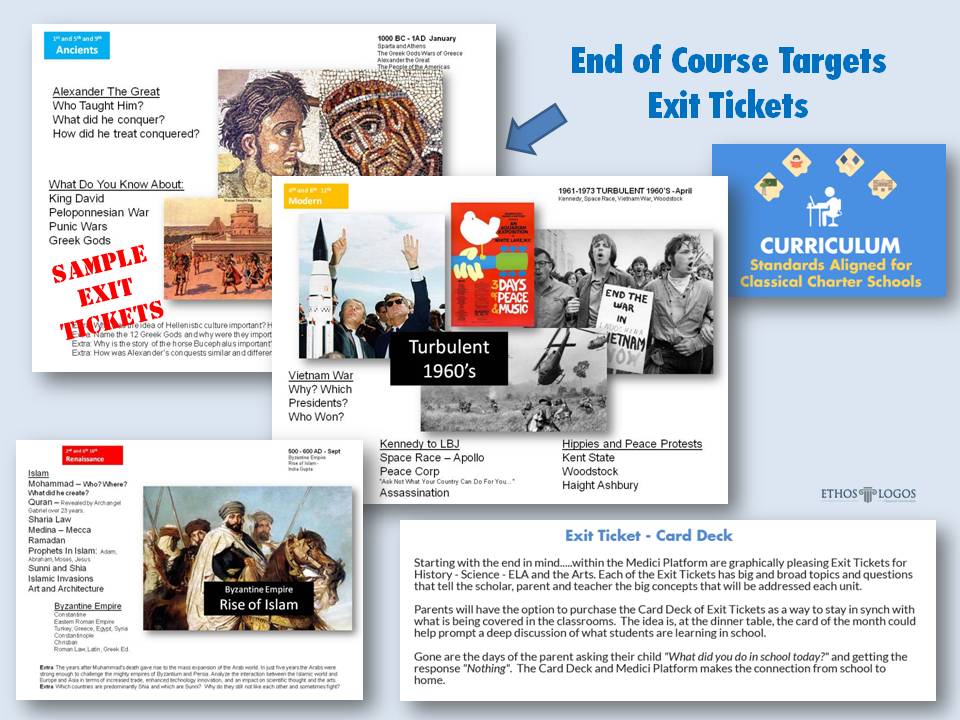
State History Requirements Included
Individual state Social Studies Standards are addressed in the scope and sequence of history instruction provided by Ethos Logos Curriculum. Students in 3rd and 4th grades are introduced to the founding documents and formation, trials and tribulations of the American government and a citizen’s role in that government. The 7th and 8th grade curriculum expands on those foundational elements and includes specific Colorado government history and scholar’s roles and responsibilities to their State and Federal government.
US Citizenship Exam
Ethos Logos Curriculum (History) includes a lesson sequence that helps your scholars pass the 100 questions on the US Citizenship Exam. The goal for a graduating 8th Grader will be to score 85% or higher on the exam. Beginning in 5th grade, up to 25 questions will be introduced and studied per year. Aligning the focus questions to the particular historic theme unit is part of the curriculum mapping. With the alarming headline that ‘2 of 3 Americans Wouldn’t Pass U.S. Citizenship Test’, our school will help inform students on the basics of being a citizen. [1] Citizenship status of our students will not be asked or a part of our academic grading.
Your school can decide to include this exercise or not. The completion and passage of this unit has nothing to do with immigration status but rather we believe it's important for students to understand their civic responsibility.
[1] 2 of 3 Americans Wouldn’t Pass U.S. Citizenship Test. A, Lardieri. US News and World Report. Oct. 18, 2018.
S.P.R.I.T.E. Model of History Content Delivery
Think of the S.P.R.I.T.E. Model of history instruction as a buffet that teachers can choose from to tailor their history units towards a particular focus. Inside the Ethos Logos Curriculum cloud at folders full of resources, powerpoints, documentaries, and lesson plans that diver deeper into the:
Society
Politics
Religion
Intellectual Advancements (Arts)
Technological Advancements
Economics
Of the time period being studied. The idea behind S.P.R.I.T.E. is that you, as the teacher know the areas that you are interested in or that your students are drawn to and can pick resources that align with those interests.
